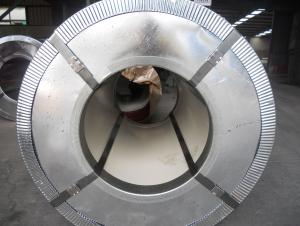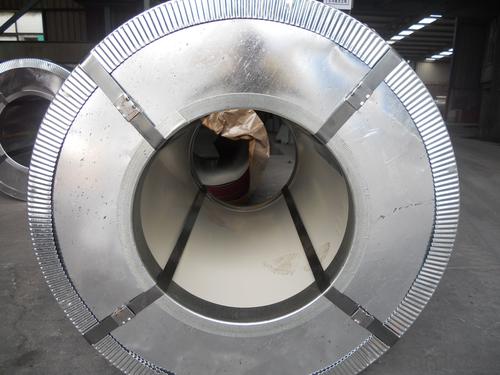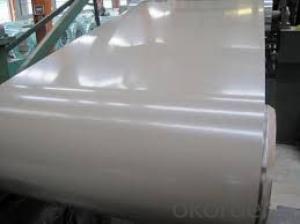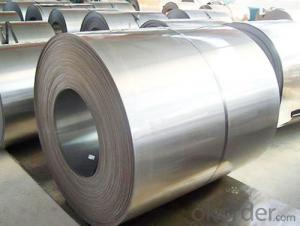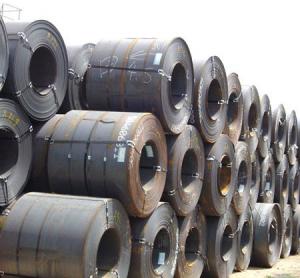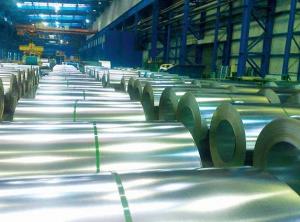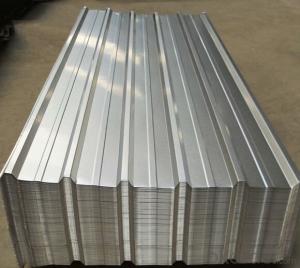HOT DIP GALVANIZED STEEL COIL
- Loading Port:
- China Main Port
- Payment Terms:
- TT OR LC
- Min Order Qty:
- -
- Supply Capability:
- -
OKorder Service Pledge
OKorder Financial Service
You Might Also Like
HOT DIP GALVANIZED STEEL COIL
STEEL GRADE & STANDARD:JIS G3302 SGCC
ZINC COATING MASS:Z40
SPANGLE:REGULAR SPANGLE
SURFACE TREATMENT:CHROMATED,UNOILED,NONSKINPASSED
SIZE:0.4*1200MMM*C
Application
1. Architecture Roofs and outside walls of civilian and industrial buildings, garage doors, fencings and window blinds
2. Appliances Industry Outer clad sheets for washing machine, refrigerator, television, air conditioner and ventilation system, explosion-proof strip, solar water heater and appliance parts
3. Auto Industry Muffler, heat shields of exhaust pipe and catalytic converter, auto parts & accessories under the frame, signboard in highway
4. Industrial Instruments Electric control cabinet, industrial refrigeration equipment, automatic vending machine
Superiority
1. Good Resistance to Corrosion
2. Qualified Processing Machinability
3. High Thermal Resistance
4. Excellent Reflectivity
5. Inexpensive and effective enough
6. Can be recycled and reused multiple times
- Q: I want to design and fab a steel helmet like that in the latest Batman cartoon movie. Only problem I can foresee is staining the metal red.
- How To Stain Steel
- Q: How are steel coils used in the production of heating and cooling systems?
- Steel coils are used in the production of heating and cooling systems as they serve as the primary component for heat transfer. These coils are designed to efficiently transfer heat or cool air, allowing for the effective regulation of temperature in heating and cooling systems.
- Q: which is the most tough and durable steel type ??
- C'mon. Really? That's your question? How about some actual details like the application, is it going to be formed into a shape, do you need to weld it, what type of environment like corrosion and temperature is it going to be subject to? There are roughly 2,000 grades of steel and a couple hundred grades of stainless steel. Steels can be soft or they can be exceptionally hard. We need more info please.
- Q: How are steel coils used in the manufacturing of storage racks?
- Steel coils are used in the manufacturing of storage racks by being cut and formed into structural components, such as beams and columns, which provide the necessary strength and durability to support the weight of stored items. These coils are processed through various machines and techniques, including bending, welding, and painting, to create the final storage rack structures.
- Q: What are the different coil edge options?
- The different coil edge options include open coil, pocket coil, continuous coil, offset coil, and Bonnell coil.
- Q: For example, (and this is weird) if I were wearing a steel collar and I needed some way to remove it, with limited supplies.Force is difficult because it would be around my neck.Chemical cominations are great- but they have to use VERY common products. And I'm not sure what to use.Other ideas?
- Your best bet would be a grinding wheel attached to a small electric motor. Even if you slipped, your skin is too soft to be cut by the dull wheel. Steel, however, is easily cut. But perhaps you don't have access to electricity or pressurized air to run such a tool. In that case, a simple file would work well, though you'd be somewhat more likely to injure yourself. If you had no tools, but access to whatever chemicals you wanted, you could try a weak acid. This would take a long time, and require constant scrubbing to bring fresh acid into the pits in the metal, but it would eventually eat through the collar.
- Q: What are the common coil edge options?
- The common coil edge options include open coil edge, continuous coil edge, and hand-tied coil edge.
- Q: How are steel coils used in the production of consumer goods?
- Steel coils are used in the production of consumer goods as raw materials for various manufacturing processes. They are often shaped, cut, or formed into different components and parts that go into products such as appliances, automobiles, furniture, and construction materials. Steel coils provide strength, durability, and versatility, making them essential in creating high-quality consumer goods.
- Q: How do steel coils compare to other materials?
- There are multiple advantages to using steel coils instead of other materials. Firstly, steel is renowned for its strength and durability, which makes steel coils highly resistant to wear and tear. This quality allows them to be used in a wide range of applications. Additionally, steel coils have excellent heat resistance, making them ideal for high-temperature environments. Furthermore, steel coils offer superior corrosion resistance compared to many other materials. This is especially important in industries like construction and automotive, where exposure to moisture and chemicals is common. Steel coils can withstand these harsh conditions, ensuring long-lasting performance and reliability. Another benefit of steel coils is their versatility. Steel can be easily molded into various shapes and sizes, allowing for customization and flexibility in design. As a result, steel coils are suitable for a wide range of applications in manufacturing, construction, transportation, and energy industries. Moreover, steel coils provide good value for money. Despite their numerous benefits, steel coils are generally more affordable than materials like aluminum or copper. This makes steel coils a cost-effective choice for businesses and industries seeking high-quality and reliable materials. In summary, steel coils offer multiple advantages over other materials. They possess high strength, durability, and heat resistance, along with superior corrosion resistance. Steel coils are also versatile and easily customizable for different applications. Additionally, they provide good value for money. Overall, steel coils are a dependable and efficient option for various industries and applications.
- Q: What are chemical properties of high speed steel? Physical properties?What is high speed steel used for? One interesting fact about high speed steel?
- wikipedia: High speed steel (often abbreviated HSS, sometimes HS) is a material usually used in the manufacture of machine tool bits and other cutters. It is often used in power saw blades and drill bits. It is superior to the older high carbon steel tools used extensively through the 1940s in that it can withstand higher temperatures without losing its temper (hardness). This property allows HSS to cut faster than high carbon steel, hence the name high speed steel. At room temperature, in their generally recommended heat treatment, HSS grades generally display high hardness (above HRC60) and a high abrasion resistance (generally linked to tungsten content often used in HSS) compared to common carbon and tool steels. see reference for more info .
Send your message to us
HOT DIP GALVANIZED STEEL COIL
- Loading Port:
- China Main Port
- Payment Terms:
- TT OR LC
- Min Order Qty:
- -
- Supply Capability:
- -
OKorder Service Pledge
OKorder Financial Service
Similar products
Hot products
Hot Searches
Related keywords
